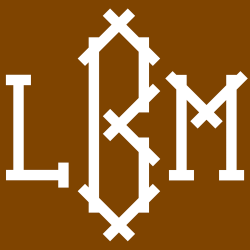Thanks for all of the excellent feedback to my recent Open Letter to the New York Times Book Review. As I mentioned in my post, the one big chance for art books is the annual Holiday Book Review. Today it arrived. As usual, illustrators did pretty well. There was the obligatory review of a New Yorker illustrator’s book (Maira Kalman…again!), Comics (three reviews by Douglas Wolk), Graphic Novels (a review of Duncan the Wonder Dog), Drawing (a review of Picture This by Drawn Quarterly), and yet another Comics review (Doonesbuy at 40).
My pulse quickened as I looked at the double-page Visuals section. But just like last year, typography owned this section (Manual of Typography, Retrofonts, Literary Tattoos from Bookworms Worldwide, Modern British posters).
How did photography fare? There were the usual travel coffee table photo books (New York: Portrait of A City, Yvon’s Paris). But then, tucked into a section called Curiosities was, gasp, an actual review of an authored photography book: Lost Souls by Lena Herzog. The most surprising thing to me is that I hadn’t heard of either the book or the photographer. I went to Herzog’s website but couldn’t find much more about the book. But I did learn on her Wikipedia page that she’s married to my favorite living filmmaker: Werner Herzog. I don’t want to believe that this is the reason her book was reviewed. So I’m curious if anyone else has seen the book. If so, what do you think of it?
![]()

The book is about unborn fetuses. Here is more info and images on Paris Review
http://www.theparisreview.org/blog/2010/06/08/lena-herzog-and-the-lost-souls/
Maybe this why it was in the paper!
New York’s Documentary Festival
http://www.docnyc.net/film/lost-souls-light-matter-a-conversation-with-lena-herzog
Pictures in a list
http://dev.pdvel.com/firefox/extensions/showmemore/show/bae6c705a478303cdc9134cb10cacce2
Any relation to Fred Herzog I wonder?
Funny I had the exact same thought today. Surely photography will fare better in the “best of 2010” issue? Not holding my breath.
Hard to imagine art photography is a smaller more ignored pond than graphic novels.
frog herzog mcgog. everybody is a photographer.
Alec,
I picked up the book about a month ago, partially because I know that Werner has been married to Lena for a number of years, because like you, he is my favorite filmmaker making films today, partially because Werner writes something in the book, and partially because of watching Ripley’s Believe it or Not as a kid with my great grandmother, visiting the museum, and coming into contact with something not unlike a wunderkammern.
Lena’s direction is in some way motivated by the mysterious fact of the Orthodox Church’s declaration that the souls of those born entombed, with various physical defects or resemblances to other creatures, were lost and unable to make it to hell or paradise–they are suspended and not able to be located or characterized.
I like the vision of photography as capturing what language and propositional knowledge are incapable of abstracting and communicating charitably, in respect and regard for the mystery of a particular thing, or entering into the place where language must, in its limitations, cede its own rights and abilities for description and interpretation…where it undoes itself because of what it is trying to tackle. The type of visual experience encouraged by these images is subversive to the authorization and classification of expertise that refuses to allow a person the sovereignty of their own ability to see, discover, wonder, and experience. The mystery of these lost souls is not subsumed by the ambitions of the book or the photographs themselves. Yet the book is troubling, mercilessly without the provocation of reference or precedent, some strange, mysterious watershed of a photography book. It is not the sort of book that I can place, nor are the photographs something you could become attached to. It contains a sort of suspended, existential question that will outlive all of us, it questions the supremacy of matter and our ability to grasp death and birth. It could be said to open up the door that the Enlightenment closed.
In thinking of Steve Mcqueen’s Hunger and Lost Souls, I’m reminded of a portion of Agee’s enigmatic introduction to Let Us Now Praise Famous Men:
“Is what you hear pretty? or beautiful? or legal? or acceptable in polite or any other society? It is beyond any calculation savage and dangerous to all equilibrium in human life as human life is; and nothing can equal the rape it does on all that death; nothing except anything, anything in existence or dream, perceived anywhere remotely towards its true dimension.”
Fantastic review Michael, thanks so much.
Thanks Alex. I’m glad for being offered the occasion.